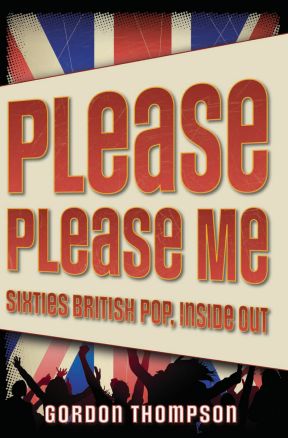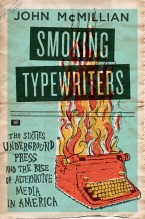 BY ANDREW MARANISS
BY ANDREW MARANISS
People assume that when your father is a Pulitzer Prize–winning, bestselling author, he must have helped you a lot with your first book.
For a while, I thought he might, too.
I’d email first drafts of my chapters for “Strong Inside” to my mom and dad, and I soon discovered why the messages I’d get back only contained suggestions from my mother: my father understood from the very beginning that I’d feel a whole lot better about my book if I knew I did it without major input from him.
Which isn’t to say that he had no influence. His fingerprints are all over it, but more in the sense of lifelong lessons on reporting and writing: avoid clichés and unnecessary words; find the universal in the particular; do the reporting.
Growing up, the people who came to visit our house for dinner or picnics were mostly journalists—I’d sit around on the periphery of the conversations and listen to the joy everyone took in describing great lead paragraphs, or scooping the competition. (I also remember the time Bob Woodward brought my sister and I some 45-RPM records, including “Safety Dance,” and the time Sarah and I tried to trick John Feinstein into eating a dog biscuit). Growing up in the home of a Washington Post journalist meant reading a great newspaper every morning—and reading great writing is the best way to learn to write. (Another childhood memory: Each morning, I’d spread the Post out on the dining room table, read the sports section first, and our family sheepdog, Maggie, would hop up on the table, park her body on top of the rest of the paper, and then lap up the milk from my cereal bowl when I was nearly done. Wow.)
 Feeling as through your creativity well is running a little dry? With The Write-Brain Workbook and Take 10 for Writers, you’ll get the words flowing again in no time! Over 1,000 combined exercises help you get into the habit of writing—and enjoy it! You’ll learn how to celebrate your own writing accomplishments; discover your own unique writing process; build momentum in your writing and overcome writer’s block. Regardless of genre, you’ll unleash your own writing passion with this Creative Writing Collection.
Feeling as through your creativity well is running a little dry? With The Write-Brain Workbook and Take 10 for Writers, you’ll get the words flowing again in no time! Over 1,000 combined exercises help you get into the habit of writing—and enjoy it! You’ll learn how to celebrate your own writing accomplishments; discover your own unique writing process; build momentum in your writing and overcome writer’s block. Regardless of genre, you’ll unleash your own writing passion with this Creative Writing Collection.
My father did not become a published author until after I graduated from college, but one of the lessons I’ve picked up from him in this later stage of his writing career is the concept of “go there.” For him, that meant traveling to Vietnam for one book, moving to Green Bay, Wisconsin, for the winter for another, and flying to Kenya, Indonesia, Hawaii and Kansas for his bio of Barack Obama.
In my case, going there meant two things: seeing my adopted hometown of Nashville through the eyes of my subject, Perry Wallace, and trying to travel back in time to the 1960s in as many ways as possible. On the time-travel side, I set my satellite radio to the 1960s channel and spent my 45-minute commutes to my “day job” listening to the songs Wallace and his contemporaries would have heard while he was making history as the first African American basketball player in the Southeastern Conference. I watched movies from the period, and read books about the Sixties that had nothing to do with Wallace’s story but shed light on the culture of the times in interesting ways (in addition to my dad’s many books that are set in the decade, one of my favorites was Mark Harris’ book, Pictures at a Revolution, on the five movies nominated for Oscars in 1967).
It was seeing Nashville through Perry Wallace’s eyes that produced the most valuable anecdotes for the book. I’ll forever remember the afternoon we spent driving around the town he left 44 years ago. He showed me the houses he grew up in, the parks he played in, the schools he attended. Driving past one house, he saw an old friend sitting on the front porch and jumped out of the car to say hello. Driving past a street corner in a now-fashionable part of town, he explained that in 1955, standing on that same corner, he had been stunned by a carload of white teenagers who pointed a gun out their window at him, pointing it, pointing it, pointing it, as the car slowly made its way around the corner. And as we drove past a baseball field, he asked me to stop the car. We got out, and he pointed to a thicket of rocks and trees behind the outfield fence. “See that rock?” he asked. “That’s where I sat and meditated over my decision whether to go to Vanderbilt.”
Suddenly I was standing next to Perry Wallace in the present, but also sitting next to him on that rock in 1966.
“Go there” indeed. Thank you, Dad.
 Andrew Maraniss is the author of the new biography, Strong Inside: Perry Wallace and the Collision of Race and Sports in the South. His father, David Maraniss, is a Pulitzer Prize–winning journalist for Washington Post and the author of 10 books.
Andrew Maraniss is the author of the new biography, Strong Inside: Perry Wallace and the Collision of Race and Sports in the South. His father, David Maraniss, is a Pulitzer Prize–winning journalist for Washington Post and the author of 10 books.
Follow Andrew Maraniss on Twitter @trublu24 and at his website, andrewmaraniss.com.
Are we living in the “anti-60s”? The Oxford Comment compares the counterculture movement to the blogosphere and pop music today….Bieber vs. Beatles! Hipsters vs. Hippies! Let the showdown begin…
Want more of The Oxford Comment? Subscribe and review this podcast on iTunes!
You can also look back at past episodes on the archive page.
Featured in this Episode:
Lauren Skypes with Gordon Thompson, Professor of Music at Skidmore College and author of Please Please Me: Sixties British Pop, Inside Out. You can read Thompson’s OUPblog column here.


* * * * *
Michelle visits the Strand Book Store in New York City and speaks with John McMillian*, author of Smoking Typewriters: The Sixties Underground Press and the Rise of Alternative Media in America,


and Jesse Kornbluth, founder of HeadButler.com.
* * * * *
The Ben Daniels Band

Gordon Thompson is Professor of Music at Skidmore College. His book, Please Please Me: Sixties British Pop, Inside Out, offers an insider’s view of the British pop-music recording industry. Earlier in the week we posted a musical riddle by Thompson and below he explains the answer. Check out Thompson’s other riddles here.
Riddle me when, riddle me why; can you name the song this time?
Ole blue eyes thought this was the best, even if he named the rest.
More than nothing, a quiet plateau; some friendly help, a bass concerto.
Sthā’ī-antarā gat nahi; an unknown answer to a desperate plea.
Forty years ago, the Beatles were in the process of disintegrating: John Lennon and George Harrison were  performing separately from the band and Paul McCartney and Ringo Starr would individually begin recording material for independent release. In the past, a separate but equally new single would shortly follow a new Beatles album. The first time they had done this had established the pattern: “From Me to You” (11 April 1963) came slightly less than three weeks after their first album, Please Please Me (22 March 1963), with both reaching the top of British charts in early May.
performing separately from the band and Paul McCartney and Ringo Starr would individually begin recording material for independent release. In the past, a separate but equally new single would shortly follow a new Beatles album. The first time they had done this had established the pattern: “From Me to You” (11 April 1963) came slightly less than three weeks after their first album, Please Please Me (22 March 1963), with both reaching the top of British charts in early May.
On 26 September 1969 (and on 1 October in the US), the Beatles had released the last LP they would record together, Abbey Road (see last month’s riddle). Returning to the studio to record a separate single presented an unlikely scenario: the fab four no longer functioned as a unified entity. Consequently, on 31 October 1969 (and on 6 October in the US), Apple released George Harrison’s “Something,” with John Lennon’s “Come Together” on the flip side of the 45 rpm disk. The recordings had already appeared on Abbey Road and the choice of these two songs suggested at least a partial symbolic ostracizing of Paul McCartney, the odd-man-out in the internal group negotiations.
Ole blue eyes thought this was the best, even if he named the rest.
George Harrison in the Beatles Anthology video seems to relish the ironic humor of Frank Sinatra (ole blue eyes) declaring “Something” to be his favorite Lennon-McCartney song. After years of laboring in the shadows of two of the most successful songwriters of the sixties (if not the century), George Harrison had grown into a consummate songwriter who saw his material routinely rejected by his band mates. These rejections meant more than simple social dismissal: a song on a Beatles album meant substantial income from royalties. While Lennon and McCartney held a substantial share in their publishing entity Northern Songs (a company their manager Allen Klein would soon let escape from their grasp), Harrison had recently established Harrisongs to handle the royalties accumulating from his material. “Something” would be one of the most substantial contributors to the coffers of that company.
More than nothing, a quiet plateau; some friendly help, a bass concerto.
“Something” (definitely more than nothing) began an era (a plateau?) of successful songs by the “quiet one” (as press coverage had characterized George Harrison). Songs like “My Sweet Lord,” “Wah Wah,” “Isn’t It a Pity,” and “All Things Must Pass,” which appeared on his first post-Beatles album All Things Must Pass, displayed a songwriter-producer-musician of substantial talent. They also revealed a musician who had discovered the art cooperative and communal creation. As he had initially with the Beatles and would later with the Traveling Wilburys, Harrison had learned how to let other musicians graciously and generously contribute to his recordings. In the case of “Something,” Paul McCartney’s spectacular bass playing compliments Harrison’s singing and guitar playing such that it almost takes the center of the listening experience, much the way a concerto is meant to contrast a soloist with the rest of the ensemble.
Sthā’ī-antarā gat nahi; an unknown answer to a desperate plea.
Although Harrison had first tried his hand at pop imitations (e.g., “Don’t Bother Me”), he made his mark as a songwriter-composer with his explorations of Indian music. His sitar contribution to “Norwegian Wood (This Bird Has Flown)” demonstrated his interest in the textures he had heard percolating in London in 1965. “Love You To” on Revolver showed he had the ability to merge the basic ideas of the South Asian tradition into a pop format. However, after studying in India with Ravi Shankar, his contribution to Sgt. Pepper’s Lonely Hearts Club Band, “Within You without You,” revealed a masterful combination of the Hindustani tradition and British pop. Taking the core instrumental idiom that North Indian classical musicians call “gat” (consisting of contrasting sections they identify as sthā’ī and antarā), he wove them together to produce perhaps the best representation of mid-sixties Indian-western musical fusion.
However, in the post-Sgt. Pepper world, he had found his own voice (e.g., “While My Guitar Gently Weeps”) and, in “Something,” Harrison’s musical sophistication shone brighter than it ever had previously. In Hindi, “nahi” negates what has just come previously. Not only did he forgo use of the sthā’ī-antarā gat form, he adopted a new style of musical composition built on what he had written in the past, but that had evolved into something new.
Part of the song’s charm lies in its internal contrasts. Where the verse finds the singer obsessed with the beloved (“Something in the way she moves…”), the chorus surprisingly questions the very nature of the attraction. In response to a question that the author perhaps asks of himself (“Will your love grow?”), he responds with an expression of ignorance: he does not know the answer, a strange acknowledgement for someone who otherwise finds himself transfixed by the beauty of his lover.

Gordon Thompson is Professor of Music at Skidmore College. His book, Please Please Me: Sixties British Pop, Inside Out, offers an insider’s view of the British pop-music recording industry. Starting tomorrow he will be providing hints to a musical riddle. His introduction is below and be sure to check back everyday this week for hints. The answer will be revealed on Monday! Feel free to guess the answer in the comments.
Part of what makes being a college professor fun lies in introducing students to subjects I know they will love. All of them have heard examples of sixties British rock and pop, but perhaps unsurprisingly, they arrive with a smattered education. I offer courses on this music ever year and always find the classes filled with enthusiastic students who want to share what they have learnt with their parents, perhaps as a way trump adult knowledge.
As an ethnomusicologist, I begin by culturally contextualizing the music, the musicians, the modes of production/distribution, and the consumers in this era. In that spirit, and inspired by my love of mysteries, I thought that this month I would provide something appropriate for Oxford’s blog readership. A recent quiz by Justyna Zajac on American libraries made me realize that in the age of the Internet, readers can obtain answers to questions with a few keystrokes. The information age pervades everything we know or think we know, including pop music with its numerous on-line biographies and discographies. I wanted something more challenging.
And so, contorting a question I might ask my students about British popular music in the fifties and sixties, I have framed a problem in the form of a riddle. I will expand the doggerel with additional lines on each of the next two days. On Monday, I will provide an explanation of the riddle. Along the way, I encourage you to share your guesses and reasoning.
Good luck!

 BY ANDREW MARANISS
BY ANDREW MARANISS Feeling as through your creativity well is running a little dry? With The Write-Brain Workbook and Take 10 for Writers, you’ll get the words flowing again in no time! Over 1,000 combined exercises help you get into the habit of writing—and enjoy it! You’ll learn how to celebrate your own writing accomplishments; discover your own unique writing process; build momentum in your writing and overcome writer’s block. Regardless of genre, you’ll unleash your own writing passion with this Creative Writing Collection.
Feeling as through your creativity well is running a little dry? With The Write-Brain Workbook and Take 10 for Writers, you’ll get the words flowing again in no time! Over 1,000 combined exercises help you get into the habit of writing—and enjoy it! You’ll learn how to celebrate your own writing accomplishments; discover your own unique writing process; build momentum in your writing and overcome writer’s block. Regardless of genre, you’ll unleash your own writing passion with this Creative Writing Collection. Andrew Maraniss is the author of the new biography, Strong Inside: Perry Wallace and the Collision of Race and Sports in the South. His father, David Maraniss, is a Pulitzer Prize–winning journalist for Washington Post and the author of 10 books.
Andrew Maraniss is the author of the new biography, Strong Inside: Perry Wallace and the Collision of Race and Sports in the South. His father, David Maraniss, is a Pulitzer Prize–winning journalist for Washington Post and the author of 10 books.












 performing separately from the band and Paul McCartney and Ringo Starr would individually begin recording material for independent release. In the past, a separate but equally new single would shortly follow a new Beatles album. The first time they had done this had established the pattern: “
performing separately from the band and Paul McCartney and Ringo Starr would individually begin recording material for independent release. In the past, a separate but equally new single would shortly follow a new Beatles album. The first time they had done this had established the pattern: “
[…] ← Jim Morrison […]